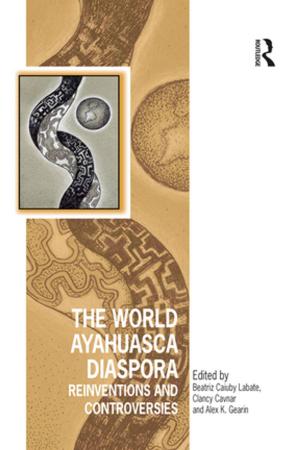Jesuit Civil Wars
Theology, Politics and Government under Tirso González (1687-1705)
Nonfiction, History, Modern, 17th Century| Author: | Jean-Pascal Gay | ISBN: | 9781317111122 |
| Publisher: | Taylor and Francis | Publication: | May 6, 2016 |
| Imprint: | Routledge | Language: | English |
| Author: | Jean-Pascal Gay |
| ISBN: | 9781317111122 |
| Publisher: | Taylor and Francis |
| Publication: | May 6, 2016 |
| Imprint: | Routledge |
| Language: | English |
Founded in 1540, the Society of Jesus quickly established itself as one of the most dynamic, influential but divisive orders within early-modern Catholicism. Yet whilst the order's role in combating Protestantism, reforming the Catholic Church and advising rulers during its first century has been well documented, much less is understood about its later years. Covering the generalate of Tirso González (1687-1705), this book offers a window onto Jesuit politics and theology during the late seventeenth century. González's generalate was dominated by two crises - one political, the other theological - both of which were to have important ramifications for the Jesuits and the wider Catholic world. The first of these was the confrontation between Louis XIV and the Papacy over the question of control of the church in France. González strongly and publicly supported Pope Innocent XI's primacy over the French clergy, despite widespread opposition from many French Jesuits who took a more 'Gallican' position. The second crisis revolved around González's opposition to the theory of 'Probabilism', to which the bulk of Jesuits subscribed. His publication of a book opposing a theological position that was deeply ingrained within the order, provided another fracture line that was to generate much heat. Whilst both crises were essentially matters for the Jesuits, this study demonstrates how they developed and played themselves out on a wide, international and increasingly public stage, showing how contending identities were forged from apparently narrow but intense and durable conflicts. As such, the book not only illuminates the role and theology of González, but also the tensions within late seventeenth-century Catholicism. It contends that, by the end of the century, Catholic confessional culture appears unable to resolve its contradictory relationship to the individual, which it empowers and dismisses at the same time.
Founded in 1540, the Society of Jesus quickly established itself as one of the most dynamic, influential but divisive orders within early-modern Catholicism. Yet whilst the order's role in combating Protestantism, reforming the Catholic Church and advising rulers during its first century has been well documented, much less is understood about its later years. Covering the generalate of Tirso González (1687-1705), this book offers a window onto Jesuit politics and theology during the late seventeenth century. González's generalate was dominated by two crises - one political, the other theological - both of which were to have important ramifications for the Jesuits and the wider Catholic world. The first of these was the confrontation between Louis XIV and the Papacy over the question of control of the church in France. González strongly and publicly supported Pope Innocent XI's primacy over the French clergy, despite widespread opposition from many French Jesuits who took a more 'Gallican' position. The second crisis revolved around González's opposition to the theory of 'Probabilism', to which the bulk of Jesuits subscribed. His publication of a book opposing a theological position that was deeply ingrained within the order, provided another fracture line that was to generate much heat. Whilst both crises were essentially matters for the Jesuits, this study demonstrates how they developed and played themselves out on a wide, international and increasingly public stage, showing how contending identities were forged from apparently narrow but intense and durable conflicts. As such, the book not only illuminates the role and theology of González, but also the tensions within late seventeenth-century Catholicism. It contends that, by the end of the century, Catholic confessional culture appears unable to resolve its contradictory relationship to the individual, which it empowers and dismisses at the same time.















